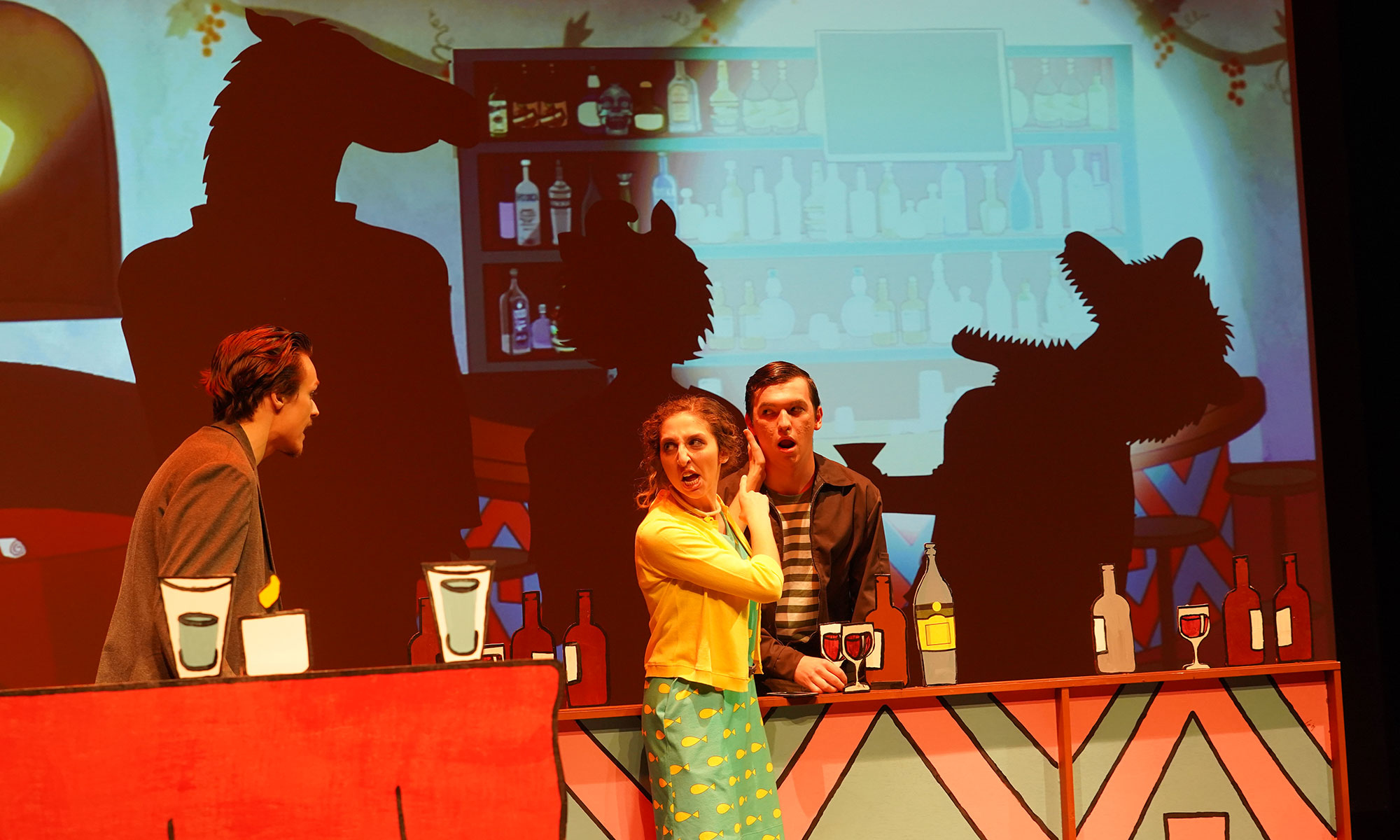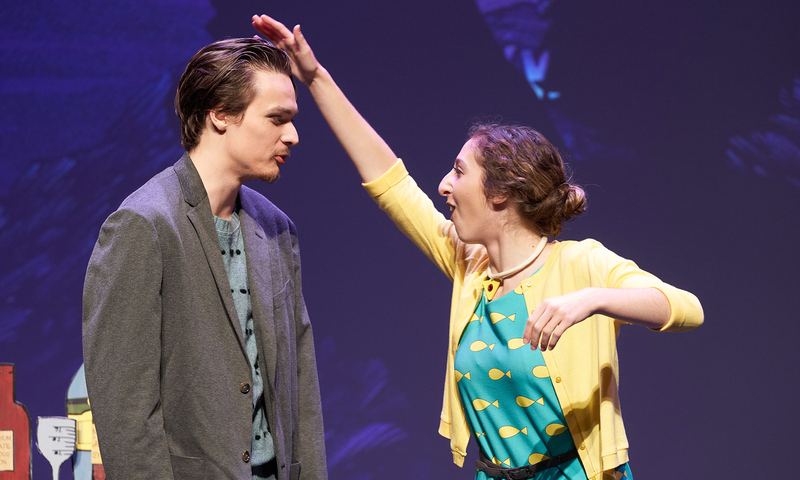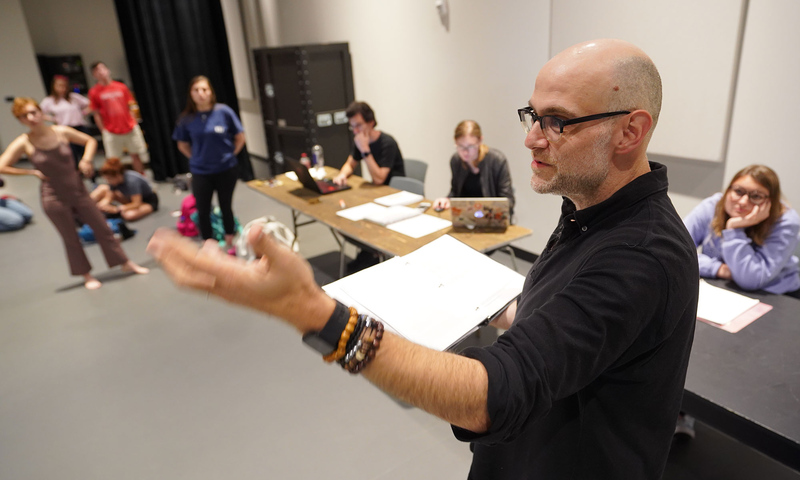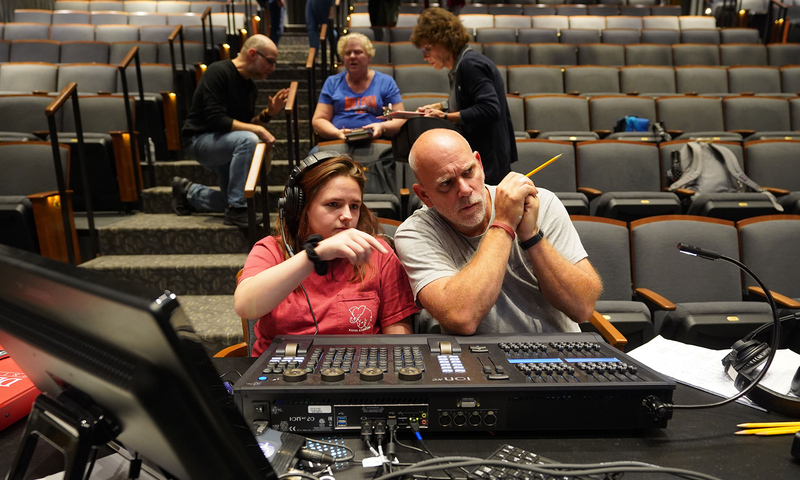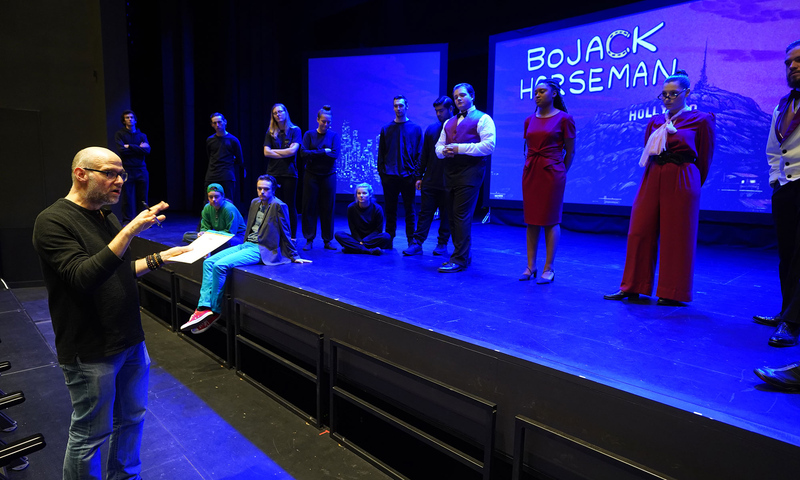Creating theatre from an animated series — without relying on cartoonish headgear — is challenging. Audiences come to productions with established relationships to the material, and navigating a faithful interpretation while retaining the ability to generate new insights is tricky stuff.
That was the quandary that Mark Evans Bryan ’96, associate professor and chair of the theatre department, found himself in when Denison alumnus and benefactor Michael Eisner ’64 granted the college the rights to bring BoJack Horseman, an award-winning animated series, to the Denison stage in celebration of the opening of the Michael D. Eisner Center for the Performing Arts. The Eisner Center is named after the former Walt Disney CEO and founder of the Tornante Co., which produces BoJack Horseman for Netflix.
It was clear from the outset that representing a “live” BoJack would require some creativity. “In an animated television show, they usually invent absurd actions and do things in the physics of their universe that we can’t do,” says Bryan in a Columbus Dispatch interview about the production.
After much discussion and brainstorming, Bryan and Associate Professor Peter Pauzé hit upon an ingenious solution — to build “shadow puppets” for each of the characters. Student actors, dressed as their characters, crossed the stage accompanied by the distinctive shadow of their persona.
Colorful and outsized props also contributed to the magic of bringing BoJack to life, but from the start the players realized that these animal characters tapped into a lot of human qualities. Characters experienced love, loss, enlightenment, and heartache.
Jordan Zelvin ’21 found a lot to identify with in her role as the pink cat Princess Carolyn, ex-girlfriend and long-suffering agent of the former sitcom actor (BoJack), who is trying to make a comeback.
“Princess Carolyn is saying things that I’ve heard myself say,” Zelvin says in the Dispatch article. She adds that a lot of women in their 20s can relate to Princess Carolyn.
The play was an adaptation of an episode titled “Best Thing That Ever Happened,” written by Kate Purdy and adapted by Bryan.

